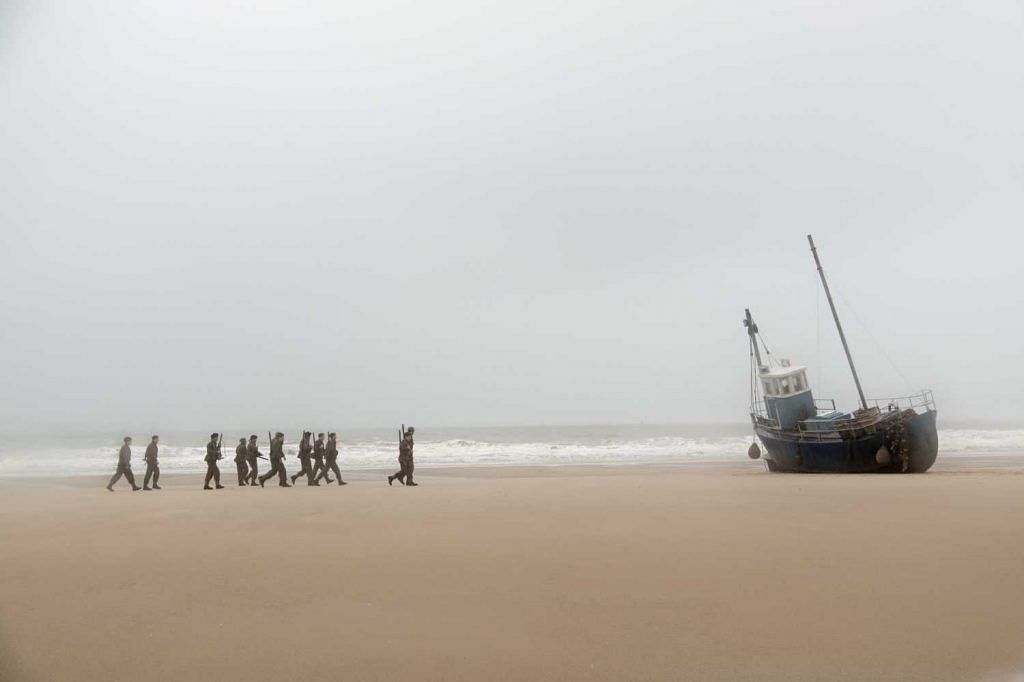Dunkirk does not deglamourise war by romanticising peace, it does so by putting the audience right at the centre of war. Indian prime-time warriors might do well in watching this Christopher Nolan masterpiece.
Srijan Shukla
Celebrated filmmaker Christopher Nolan had recently said in an interview that his movies are his way of making political commentary. Dunkirk illustrates this perfectly.
The central theme of the film is about realising that war is no game – a point that cannot be emphasised enough today. Armies are instruments of the state, and wars are sometimes a necessary political end. But war-mongering is not. The city or its people who experience war are scarred forever. We see that in Kashmir today. To this end, the steady rise of Indian nationalism has resulted in increased war-mongering across television news and society at-large. Professional news anchors and citizens alike think of war as an easy remedy for all of India’s foreign policy problems. Perhaps by showing the cruel paranoia of war, Dunkirk could act as a timely warning for Indians struck with the illusionary thrill of war.
Besides, it is only necessary that a British filmmaker comment on the affairs of his own state in times of Brexit. Towards the end of the movie, a British soldier on his return to England from Dunkirk reads out a newspaper article to his fellow soldier. The article was a bold declaration of British “exceptionalism”, but also reminds us of the shared war experience the British had with the rest of the continent. A section of Britons are today struck with imperialistic nostalgia. A long-dominant strain of British political thought denies seeing itself as a part of Europe’s shared history. Dunkirk underscores the futility and perils of this tendency.
It is a masterpiece for other reasons too. From John Lennon to contemporary Left movements, there is ample amount of discourse surrounding the futility of war – all aimed at making the very same pacifist artistic statement. Where Dunkirk differs is that it puts the audience right at the centre of war, giving them a firsthand experience of war itself.
The enemy is never shown on the screen. There are no generals in a war room quibbling over military strategy. There are no weeping housewives. And there are no politicians giving speeches about national unity in pressing times.
By taking away the thrill of strategy and victory, Dunkirk deglamourises war. It tells its audience that experiencing a war changes people. Its emphasis is solely on the human condition, for it constantly oscillates between tragedy and survival. You either die or survive long enough to see your fellow soldier die.
Nolan wisely chooses the Battle of Dunkirk to demonstrate this point. Time in the movie is stagnant. You can’t combat the enemy, and there’s no escaping. You have to stay right there, and face the consequences of the wretched, bloody war – a truth that jingoistic war-mongers would rather have us forget.
Srijan Shukla has studied politics and economics at McGill University, Montreal, Canada.
